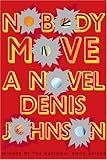 However, if you let go of preconceptions about what a novel should be and how it’s meant to function, and read the work, instead, as a literary exploration of the unseen, beyond the world of logic and progression, then the work becomes much more powerful, yielding a transcendence that moves beyond the flow of ordered progression. The work moves in pulses; in moments of magic that become “elixirs, life renewed in the laboratory of Arcadia” or humanity’s highest self.
However, if you let go of preconceptions about what a novel should be and how it’s meant to function, and read the work, instead, as a literary exploration of the unseen, beyond the world of logic and progression, then the work becomes much more powerful, yielding a transcendence that moves beyond the flow of ordered progression. The work moves in pulses; in moments of magic that become “elixirs, life renewed in the laboratory of Arcadia” or humanity’s highest self.
Interview with Deborah Harkness
 The author of the newly released paperback version of The Book of Life returns to The Compulsive Reader to talk about the intersection of science and magic, about the themes of her book, the value of fantasy, the story behind her book, her settings, about lost books, and lots more.
The author of the newly released paperback version of The Book of Life returns to The Compulsive Reader to talk about the intersection of science and magic, about the themes of her book, the value of fantasy, the story behind her book, her settings, about lost books, and lots more.
A review of Chez l’arabe by Mireille Silcoff
 The eight stories in Mireille Silcoff’s collection, Chez l’arabe have a common theme, the shock and confusion we feel when faced with a nasty twist of fate. The central character of “Champ de Mars” is very human in her belief that the terrible pain she suffered over her child’s death “would absolve her from future hardship…she’d absorbed the blow, remained upright. Surely, for this, some kind of immunity?” Alas, life seldom works out that way, though some of Silcoff’s fictional characters fare better than others.
The eight stories in Mireille Silcoff’s collection, Chez l’arabe have a common theme, the shock and confusion we feel when faced with a nasty twist of fate. The central character of “Champ de Mars” is very human in her belief that the terrible pain she suffered over her child’s death “would absolve her from future hardship…she’d absorbed the blow, remained upright. Surely, for this, some kind of immunity?” Alas, life seldom works out that way, though some of Silcoff’s fictional characters fare better than others.
A review of Devadatta’s Poems by Judith Beveridge
 Devadatta’s Poems is a delightful book of poetry full of the kind of mischievous fun that comes with exploring a fallen character: an anti-hero already relegated, historically, to obscurity. Beveridge’s Devadatta is as compelling as he is repellant and his voice is one that will amuse, enlighten, and enrich readers.
Devadatta’s Poems is a delightful book of poetry full of the kind of mischievous fun that comes with exploring a fallen character: an anti-hero already relegated, historically, to obscurity. Beveridge’s Devadatta is as compelling as he is repellant and his voice is one that will amuse, enlighten, and enrich readers.
Interview with Kim Korson
 The author of I Don’t Have a Happy Place talks about her book and the impact of writing about such heavy topics, the things she’s learned, the structure of her book, about writing in the voice of teenaged Kim, the comedians who have inspired her, and lots more.
The author of I Don’t Have a Happy Place talks about her book and the impact of writing about such heavy topics, the things she’s learned, the structure of her book, about writing in the voice of teenaged Kim, the comedians who have inspired her, and lots more.
A review of How to be Another by Susan Lewis
 The narrative in this collection exists in that there is no narrative; we find ourselves instead in the pairing of clashing words that, like a musical score, creates not an arch, but rather the opening of a flower. Each prose poem is handled with delicate care, and yet, Lewis is able to formulate each in a sense of divine carelessness. She redesigns familiar clichés into new architecture, allowing a close proximity to the reader throughout each section.
The narrative in this collection exists in that there is no narrative; we find ourselves instead in the pairing of clashing words that, like a musical score, creates not an arch, but rather the opening of a flower. Each prose poem is handled with delicate care, and yet, Lewis is able to formulate each in a sense of divine carelessness. She redesigns familiar clichés into new architecture, allowing a close proximity to the reader throughout each section.
A review of The Life of Houses by Lisa Gorton
 Though the book reads quickly, it’s denser than it feels. As a reader, I felt it was necessary to slow down my reading so I could notice all the descriptive detail and the power in each word in The Life of Houses, allowing the story to unfold at its own rhythm and get fully under the skin. This is an utterly beautiful and somewhat sad story that grows in power with re-reading as it strikes at the heart of human relationships, families, self-perception, and how we make meaning in our lives.
Though the book reads quickly, it’s denser than it feels. As a reader, I felt it was necessary to slow down my reading so I could notice all the descriptive detail and the power in each word in The Life of Houses, allowing the story to unfold at its own rhythm and get fully under the skin. This is an utterly beautiful and somewhat sad story that grows in power with re-reading as it strikes at the heart of human relationships, families, self-perception, and how we make meaning in our lives.
A review of Nobody Move by Denis Johnson
 Some of it has an edge – to be absolutely just – but I think even Johnson himself lost interest in it, characters and story, the whole shebang, way before the close. The novel sputters to an end.
Some of it has an edge – to be absolutely just – but I think even Johnson himself lost interest in it, characters and story, the whole shebang, way before the close. The novel sputters to an end.
Interview with Tonya Barbee
 The author of The Little Girl Inside: Owning My Role in My Own Pain talks about how she started writing, the inspiration for her book, her title, her themes, her work-in-progress, the hardest part of writing the book, and more.
The author of The Little Girl Inside: Owning My Role in My Own Pain talks about how she started writing, the inspiration for her book, her title, her themes, her work-in-progress, the hardest part of writing the book, and more.
A review of Confidentially Yours by Charles Williams
 You could say, tongue in cheek, that it is the diverting story of how a man loses one wife and finds another. There are lots of twists and turns to the story, the characters are well-defined (if anything, they behave a little too straightforwardly – no melancholy moping as in some novels I’ve read recently) and Williams’s prose is plenty good enough.
You could say, tongue in cheek, that it is the diverting story of how a man loses one wife and finds another. There are lots of twists and turns to the story, the characters are well-defined (if anything, they behave a little too straightforwardly – no melancholy moping as in some novels I’ve read recently) and Williams’s prose is plenty good enough.